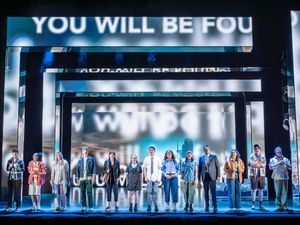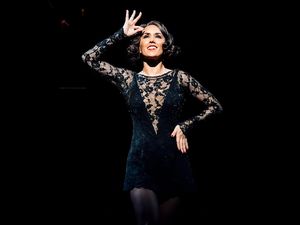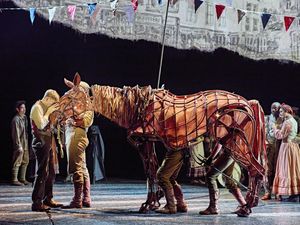Who Want to be a Millionaire scandal: Tarrant says major was never a ‘victim’
A West End play tells the story of how former Shropshire schoolboy Charles Ingram clinched a £1 million TV prize – only to fall foul of the law. Mark Andrews reports.
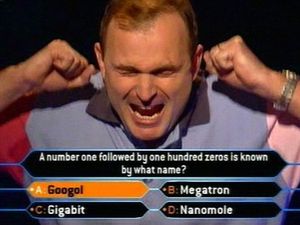
Television star Chris Tarrant has told people not to be taken in by a new stage play about Charles Ingram, who was convicted of cheating on the quiz show Who Wants To Be A Millionaire.
The West End play Quiz, by James Graham, tells the story of how Ingram appeared to win the £1 million prize on the game show in 2001, before being disqualified and later convicted of fraud.
The play appears to cast doubt on the guilt of Ingram, his wife Diana and fellow contestant Tecwen Whittock, who were accused of helping him select the right answers by coughing. At the end of the show, the audience is invited to cast votes on whether they believe Ingram cheated or not.
But Tarrant, who was asking the questions when former Oswestry School pupil Ingram was in the hot-seat, said he was in no doubt whatsoever that Ingram was guilty as charged.
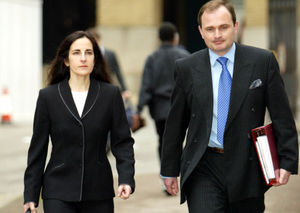
The Ingrams were each handed 18-month suspended prison sentences, while Whittock was given a 12-month suspended sentence after being convicted at Southwark Crown Court in 2003.
Tarrant, who hosted the series from 1998 to 2014, said while the play made for good entertainment, people should not be fooled into believing Ingram was the victim of a miscarriage of justice.
Writing for a national newspaper, the broadcaster said Ingram should not be viewed as some sort of modern-day Robin Hood.
He said: “To settle any doubts you might have about the character at the centre of the play, he was as guilty as sin.
“You need to know this in advance, because I’ve seen the show, and the cast go all out to portray the central character, Major Charles Ingram, and his wife Diana as innocent parties.”
At the time Ingram was a serving major in the Royal Engineers, but was ordered to resign his commission after his conviction.
Later that year he was convicted of insurance fraud and given a conditional discharge.
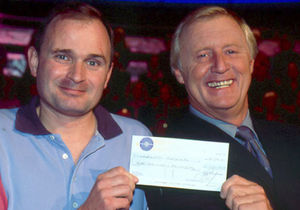
Tarrant said he remembered Ingram, whose wife and brother-in-law had both already appeared on the show, as seeming “nice but dim”.
Diana had already won £32,000 on the show, and Tarrant said he felt sorry for Ingram having to follow in his wife’s footsteps.
“There was a lot of pressure on him to match his missus, and he didn’t have the brains to do it,” he said.
“My fears for him increased when the questions were still easy ones and the prize money stood at just £1,000.
“I asked him: ‘The Normans, who conquered England in 1066, spoke which language?’. He floundered. Was it Danish? Perhaps Norwegian? Probably not German. Or maybe French?
“After a lot of hesitation, he plumped for French. Which, as any schoolboy knows, is the right answer.
“That pattern was repeated twice more: total bewilderment followed by a lucky guess.”
He said suspicions grew when a sound technician noticed the equipment had been affected by intermittent bursts of interference, and the studio manager reported a member of the audience causing constant disruption, by getting up to use his mobile phone. The man turned out to be another of Diana Ingram’s brothers.
Hardship
Ingram later wrote a novel detailing the hardship he and his family suffered following the conviction.
Tarrant said he felt little sympathy for Ingram.
“Some may feel poor old Charlie Ingram has paid a high price for his ham-fisted attempt to cheat at a quiz game,” he said.
“But this was a scheme to defraud a public company out of £1 million.
“Anyone who tried to steal that from a bank would be looking at a long sentence.”
Graham said he chose to make the play because he was fascinated by the concept of truth.
“We’re in a climate where we are all getting very anxious and nervous, and it’s hard to maintain an objective sense of reality,” he said.
What was the reality of the coughing scandal?
“I always enjoy finding fun ways to explore these sorts of themes and I think this episode provided me with one,” he added.
“There are still differing opinions about what was real and not real about the whole thing, and the trial itself turned into a great piece of theatre.”

